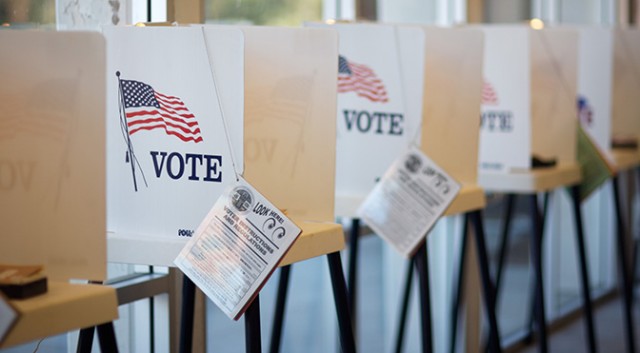Yesterday’s [March 5, 2016] contests may not have been positioned under the microscope quite as much as past voting days, but its significance still stands.
In total, Donald Trump and Ted Cruz won two caucuses each, with the real estate mogul taking Kentucky and Louisiana while the top establishment candidate took wins in Kansas and Maine, leaving remaining competitors Marco Rubio and John Kasich behind.
On the Democratic side, Bernie Sanders took away Nebraska and Kansas while Hillary Clinton took the minority dominated Louisiana vote.
While the results were a little less than surprising, it all adds up to some common themes we’ve seen along the campaign trail so far.
First, although Cruz and Trump are still dominating the race and racking up the most delegate counts, the remaining GOP candidates still think they have a shot at this.
March 15 will mark the winner-take-all contests where Rubio’s home state of Florida and Governor Kasich’s Ohio have major delegate points worth scoring.
Rubio made sure to make that clear as he spoke in Puerto Rico, in an effort to win the territory’s 23 US delegates.
“There will be more delegates awarded in Florida than basically any other state that voted tonight combined,” Rubio said. “There are clearly states in which some of my opponents do better than us because it fits the profile they’ve targeted. We understood that.”
On the other hand, things are looking pretty good for Ted Cruz. It now seems that in the Rubio-Cruz scuffle in determining who would actually rise to take on Donald Trump, the Texas-bred senator is rising victoriously.
But, that could also be due to the fact that three of the past four contests were caucuses that only allowed preregistered Republicans to vote.
As the race moves toward a mix of primaries and caucuses in which undeclared voters can choose to vote, the ‘outsider’ electorate that Donald Trump has fiercely gone after will be showing in great numbers, making end results pretty unclear.
On the Democratic side of things, it’s pretty clear.
Sanders’ wins in Nebraska and Kansas and Clinton’s win in Louisiana still point to their voter demographics.
Bernie Sanders is still dominating among white voters, and Hillary Clinton’s victories are pointed towards the minority vote, a crucial part in the Democratic nomination.
After yesterday’s wins, Sanders doesn’t seem to be closing up shop anytime soon.
“The win in Nebraska coupled with a double-digit victory in Kansas tonight will put us on a path toward victory. We’ve got the momentum, the energy and the excitement that will take us all the way to the Democratic National Convention in Philadelphia,” Sanders said in a speech after winning Nebraska.
As the race moves up North, all eyes will still remain on the African-American population, who still play a major role in industrial states like New York, Pennsylvania, Michigan and Ohio.
Today, Republicans will be looking to gain a win in Puerto Rico as Democrats look towards Maine.
